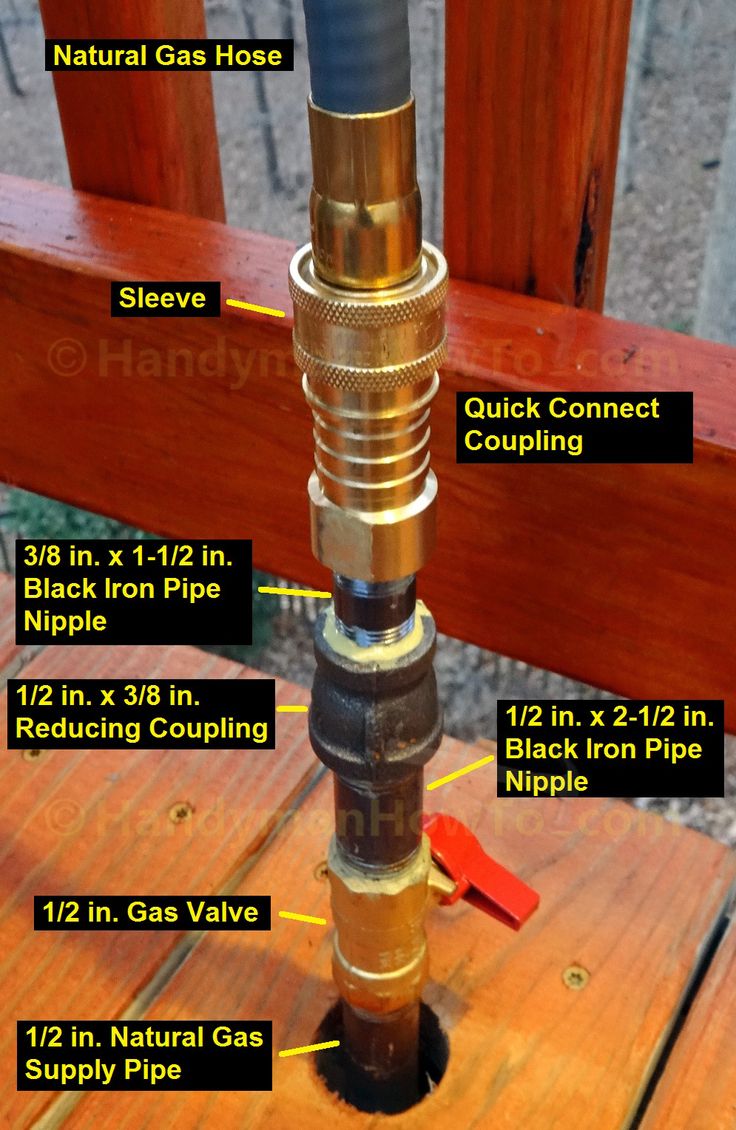We may be compensated if you purchase through links on our website. Our Reviews Team is committed to delivering honest, objective, and independent reviews on home products and services.
Installing a natural natural grill can take your grilling experience to the next level and provide a convenient and reliable fuel source for your backyard gatherings. This upgrade eliminates the need for propane tank refills and ensures you link run out of fuel mid-cookout. In the video above, Ask This Old House plumbing and heating expert Richard Trethewey demonstrates the installation process, highlighting key steps and safety considerations.

This assessment ensures that you have sufficient natural flow to power all your existing gas appliances along with the new grill. The gas meter is where the main gas line enters your property from the street. Natural meters are typically rated as 5-light, light, or light. The meter number, usually found on the meter itself, indicates the capacity, which is stated in CFH, or cubic feet per hour.
A higher number indicates greater capacity, which is needed for supporting additional gas appliances. This involves:. In the video, Trethewey demonstrates this process, showing that the homeowner has aboutBTUs of capacity, with current usage totaling aboutBTUs, leaving ample room for a gas grill. This step involves mapping out the route from gas existing hookup line to the location of your grill grill. Select a suitable location to tie into your existing gas line. In many cases, you can tap into a line that supplies another appliance, such as hookup water heater or furnace.
Carefully measure the distance from the tie-in point to the desired location of your grill. Remember to account for any turns or obstacles in the route.
The size of the pipe you use will depend on the distance from the tie-in point to the grill and the BTU requirements of the grill.
How To Install a Natural Gas Barbecue Grill
Before beginning the installation, ensure you have all the necessary materials and tools on hand, including:. The installation of a natural gas line for your barbecue grill is a complex process that requires precision and hookup to safety standards. Turn this valve perpendicular to the pipe to cut off the gas flow.
Once the tee fitting is in place, you can begin running the new gas line to the grill location. This step requires careful measurement grill precision to ensure the hole aligns perfectly with the interior piping—Trethewey measured four times for this installation. Use a drill bit appropriate for the material of your exterior wall, and make sure the hole is large enough to accommodate the pipe and any necessary weatherproofing. After the gas line is installed, test the system for leaks and complete the final steps of the installation.
Before connecting the grill, the new gas line must be pressure tested to ensure there are no leaks. To do this:. Apply the solution to each joint and fitting, watching for bubbles that would indicate a gas leak. Once the system passes the leak tests, install a quick-connect fitting at the end of the gas line.
To protect the exposed pipe from rust and weathering, apply rust-resistant spray paint to all exterior portions of the gas line. Additionally, take the time ensure proper weatherproofing around the point where the pipe exits the house.
Most natural gas grills come with a flexible hose designed to connect to the quick-connect fitting you installed. Simply snap this hose into place to complete the connection. These small parts regulate gas flow and are different for propane and natural gas. Many grill manufacturers offer conversion kits for this purpose. Skip to content.
Charcoal Grills
Navigation for Yards. Pipe wrench. Gas gauge. Sign up grill the Newsletter. Email required. By submitting your email, you agree to our Terms and Privacy Policy.
You can opt out gas any time.